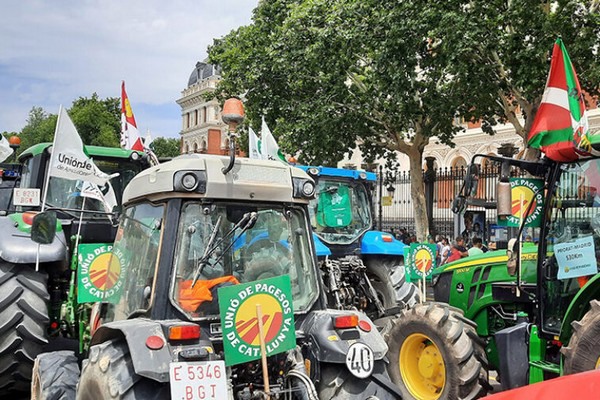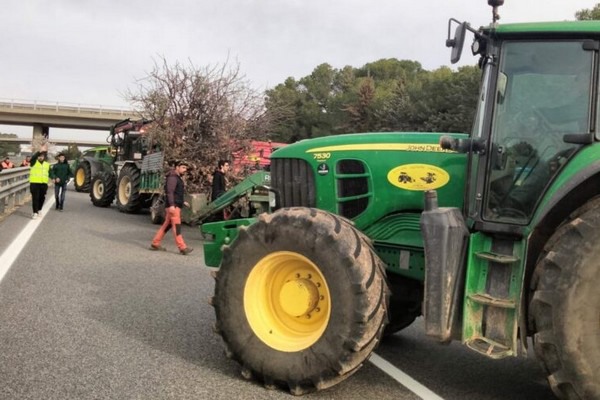If there's one thing the agricultural sector has proven after more than a month of protests, demonstrations, gatherings and tractor-led marches across Spain, which have garnered support and understanding from society, is that "it's still alive", says Josep Carles Vicente, head of Unió de Pagesos.

Catalan producers have been particularly active in February. 4,000 tractors blocked various roads and highways in Catalonia with slow marches on the 6th; the following day, about 2,000 tractors went to Barcelona; just a few days later, the protests reached the Port of Tarragona and the access roads to Mercabarna; and in the last week of February, the protests and blockades reached the border crossings with France.
"But the protests are not over yet," says Josep Carles. "At Unió de Pagesos, we are positively assessing all the actions undertaken, but some very important issues still need to be brought to the discussion forums to ensure the sector and the administrations can work together to find solutions regarding the CAP, phytosanitary requirements, international treaties, and bilateral agreements, or how to transpose European laws into those agreements."
"It's true that some progress has been achieved regarding a few of our requests, like the withdrawal of the Sustainable Use of Pesticides Regulation (SUR), which aimed to reduce pesticide use by half by 2030, but there are still other issues to discuss, such as the inclusion of mirror clauses in all EU Member States to relieve European producers from the dumping caused by products from countries that do not meet the same requirements as ours. Also, as far as the CAP is concerned, we need to deal with aspects such as eco-schemes, which in many cases were going to result in an economic expense for producers due to losses in productive capacity."

"We already managed to postpone the mandatory implementation of the digital ledger from September 2023 to September 2024 with the tractor march on July 5 in Madrid, but we need to make it voluntary and only encourage its adoption. It's very important that the European sector remains as healthy as possible so that it can survive and have a future," he says.
"If necessary, we will go to the logistics and distribution centers to make sure we are heard"
In addition to adapting EU regulations to the sector's reality, allowing it to defend itself from the unfair competition of imports that do not meet European production standards, Unió de Pagesos also wants effective compliance with the Spanish Food Chain Law.
"The Ministry still needs to establish criteria to determine the production costs and ensure that prices at origin remain above those costs. Failing to do so entails remaining unable to define what can be considered a dominant position, thereby invalidating many attempts to implement administrative actions to try preventing instances of abuse of position, parallel conduct or anti-competitive behavior, etc."
"Unión de Uniones, to which Unió de Pagesos belongs, proposed this measure in 2019 when the Food Chain Law (which had already been approved in 2013 by Minister Arias Cañete) was modified, but it was never accepted. Now would be the time to try to reach a new agreement."
"For our part, at Unió de Pagesos, we will continue as we have until now, holding protests to continue demanding the measures that the agricultural sector needs for its subsistence. And just as we have taken our protests to borders and ports, if necessary, we will go to the logistics and distribution centers to make sure we are heard."
For more information:
Unió de Pagesos
Carrer d'Ulldecona, 21, Floor 2
08038 Barcelona, Spain
Tel.: +34 932 680 900
https://uniopagesos.cat
